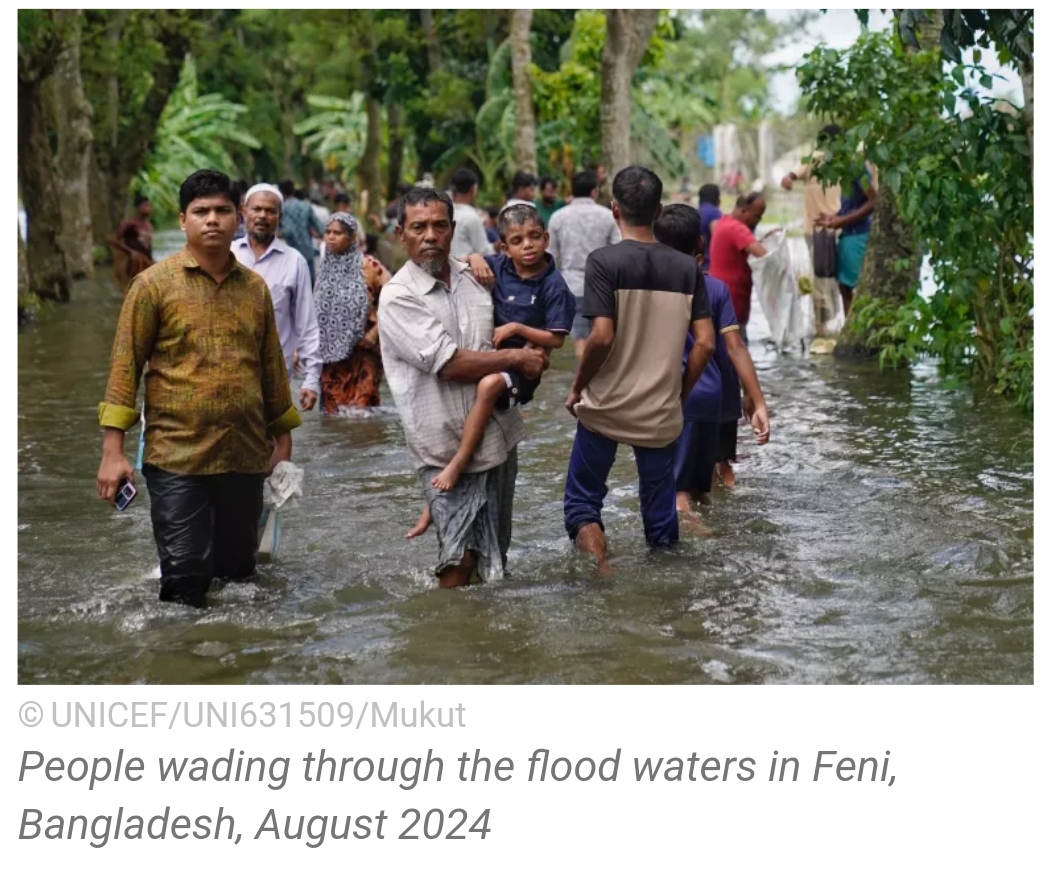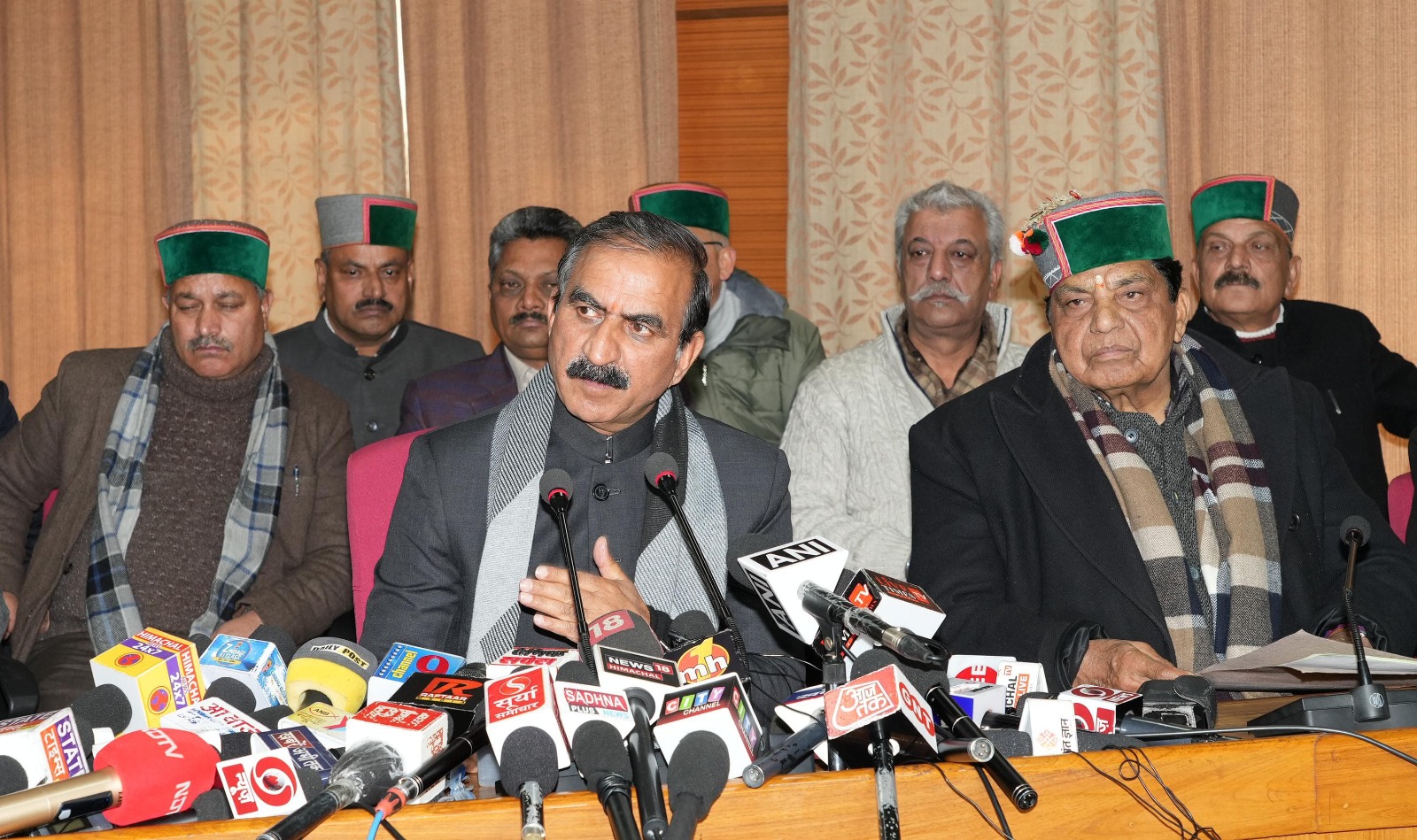Severe Flooding in Eastern Bangladesh Puts Over Two Million Children at Risk: UNICEF.
Dhaka:
Eastern Bangladesh is grappling with its worst floods in 34 years, affecting 5.6 million people and placing over two million children at severe risk, according to a warning from UNICEF. The catastrophic flooding, triggered by unprecedented monsoon rains, has inundated homes, schools, and villages, leading to significant loss of life and widespread devastation.
Major rivers in the southeast have overflowed, resulting in the death of more than 52 individuals. The situation has forced over 500,000 people into makeshift shelters as rising waters have submerged homes, streets, and fields, particularly in the Chattogram and Sylhet Divisions. Millions are now stranded without adequate food and emergency relief supplies, exacerbating the crisis.
UNICEF Deputy Representative for Bangladesh, Emma Brigham, highlighted the severe impact on children, stating, “The devastating floods in the eastern parts of Bangladesh are a tragic reminder of the relentless impact of extreme weather events and the climate crisis on children. Far too many children have lost loved ones, their homes, schools, and are now completely destitute.”
Emergency response efforts are underway, with government personnel and volunteers conducting rescue operations despite challenging conditions. UNICEF has been actively involved, providing essential supplies such as water purification tablets, oral rehydration salts, and hygiene kits. To date, UNICEF and its partners have reached over 338,000 people, including 130,000 children, with crucial aid including 3.6 million water purification tablets and over 250,000 oral rehydration salt sachets.
However, the scale of the disaster necessitates further intervention. UNICEF urgently requires up to $35.3 million for life-saving supplies, cash assistance, safe drinking water, emergency latrines, and primary healthcare services. This funding is crucial to support the growing number of affected children and pregnant women and to restore essential services.
The current floods come on the heels of previous emergencies, including flooding in northern Bangladesh and Cyclone Remal in May, which together have impacted over 13 million people, including 5 million children. The recurring nature of these crises underscores the exacerbating role of climate change, which increases the frequency and severity of extreme weather events.
Brigham emphasized the broader implications of the climate crisis: “Year on year, the lives of millions of children in Bangladesh are being ravaged by floods, heatwaves, and cyclones. Climate change is clearly changing children’s lives. We call on global leaders to act urgently and take strong measures to mitigate the effects of climate change before it is too late for children.”
UNICEF’s efforts are part of a larger global response to address the climate crisis, aiming to protect children’s lives and well-being, empower them as environmental champions, and reduce emissions and environmental impact. The situation remains dire, and continued support and action are critical to alleviating the suffering of those affected by this devastating flood.




